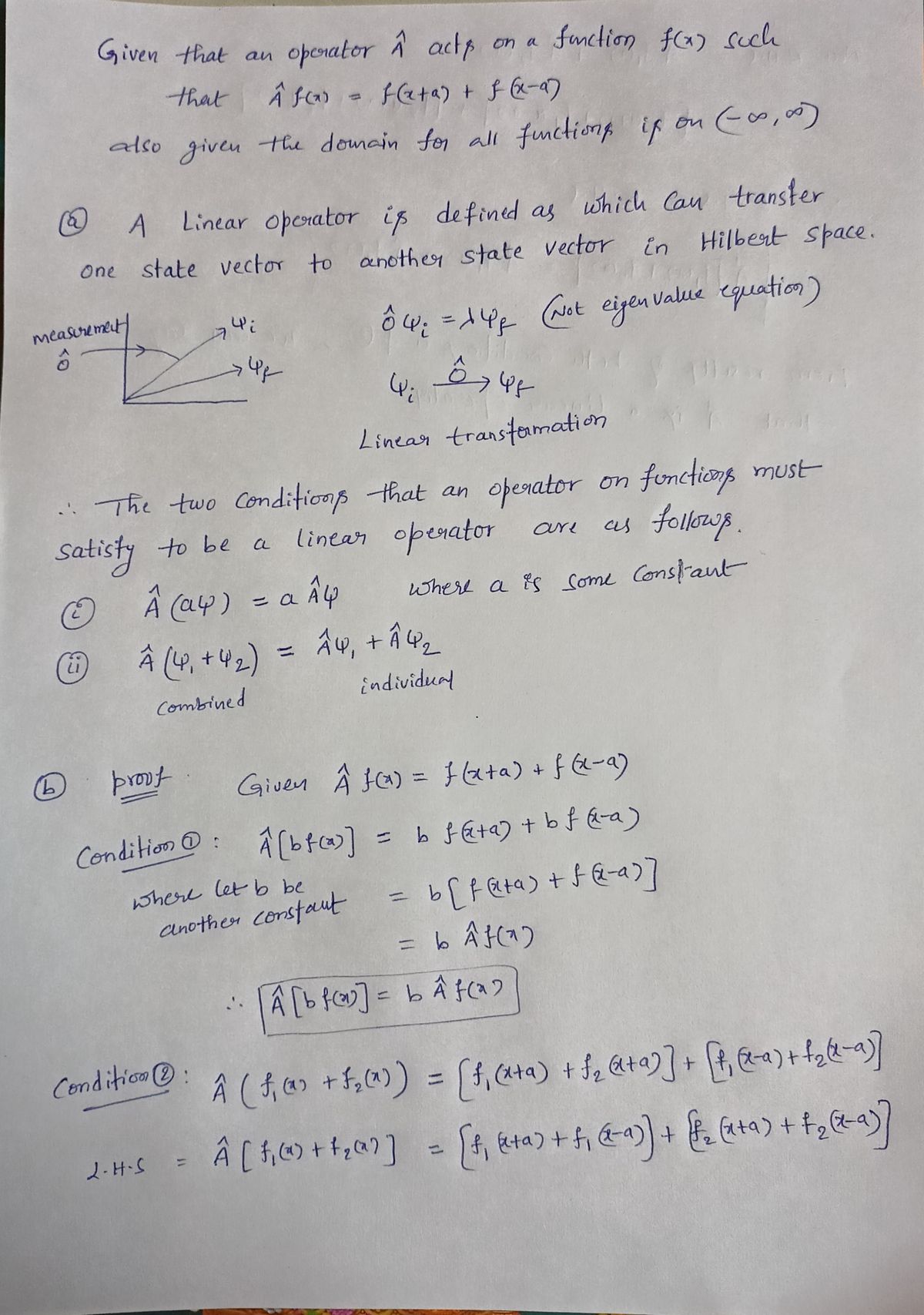Consider the operator  such that for function f(x) we have: Äf(x)= f(x+a)+ f(x-a). The domain for all functions is on (-∞, 0). (a) What are the two conditions that an operator on functions must satisfy to be a linear operator? (b) Prove A is a linear operator.
Consider the operator  such that for function f(x) we have: Äf(x)= f(x+a)+ f(x-a). The domain for all functions is on (-∞, 0). (a) What are the two conditions that an operator on functions must satisfy to be a linear operator? (b) Prove A is a linear operator.
Related questions
Question
![Consider the operator \( \hat{A} \) such that for function \( f(x) \) we have:
\[ \hat{A}f(x) = f(x+a) + f(x-a) \].
The domain for all functions is on \( (-\infty, \infty) \).
(a) What are the two conditions that an operator on functions must satisfy to be a \emph{linear} operator?
(b) Prove \( \hat{A} \) is a linear operator.](/v2/_next/image?url=https%3A%2F%2Fcontent.bartleby.com%2Fqna-images%2Fquestion%2F2e50119e-8646-4255-90fd-98958ba58941%2F9c449b59-68b7-4ab9-aad2-2eed531fb87c%2F42ozo5u_processed.jpeg&w=3840&q=75)
Transcribed Image Text:Consider the operator \( \hat{A} \) such that for function \( f(x) \) we have:
\[ \hat{A}f(x) = f(x+a) + f(x-a) \].
The domain for all functions is on \( (-\infty, \infty) \).
(a) What are the two conditions that an operator on functions must satisfy to be a \emph{linear} operator?
(b) Prove \( \hat{A} \) is a linear operator.
Expert Solution
Step 1

Step by step
Solved in 2 steps with 2 images
